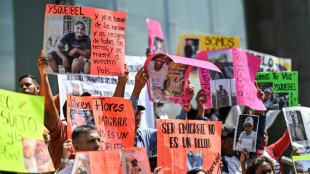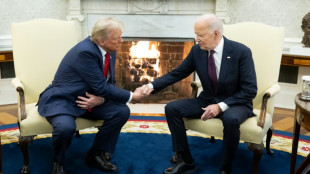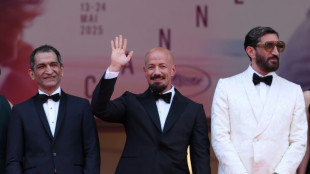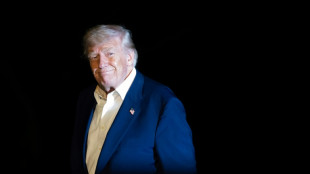Portugal's far-right party gains as premier holds on
Portugal's Prime Minister Luis Montenegro prepared Monday to lead a new minority government after the upstart far-right Chega party tied for second place in snap elections, posing a major challenge to his centre-right alliance.
Nearly complete official results showed that Montenegro's Democratic Alliance (AD) had boosted its tally in the 230-seat parliament to 89 in the Sunday election, short of the 116 seats required for a majority.
Chega, led by the former television sports commentator Andre Ventura, won eight additional seats to reach 58, putting it on par in second place with the Socialist Party that also obtained 58.
There are still four seats left to be assigned representing Portuguese who live abroad.
Ventura said he was confident Chega would pick up a couple of those seats, as it did in the previous election last year, and would overtake the PS to become Portugal's main opposition party for the first time.
"We didn't win these elections but we made history," Ventura told supporters who chanted "Portugal is ours and it always will be" shortly after midnight on Monday.
"The system of two-party rule in Portugal is over," he said.
Even with the backing of the recently formed business-friendly party Liberal Initiative (IL), which won nine seats, Montenegro's AD would still need the support of Chega or the PS to pass legislation.
But Montenegro, 52, a lawyer by profession, has refused any alliance with the anti-establishment Chega, saying it was "unreliable" and "not suited to governing".
- More elections ahead -
His previous minority government was able to pass a budget because the PS abstained in key votes in parliament.
But relations between Portugal's two mainstream parties have soured during the campaign, and it is unclear if a weakened PS -- which had its lowest score in decades, losing 20 seats -- will be willing to allow the centre-right to govern this time around.
Montenegro said he expected a "sense of state, a sense of responsibility" from other parties so he could "continue to work".
But Portugal will remain in campaign mode ahead of local elections this year and a presidential election set for January 2026.
The coming contests are likely to reduce the incentive for parties to cooperate as they focus on highlighting their differences to sway voters.
Antonio Costa Pinto, a political scientist at the University of Lisbon, predicted that Chega would take a "hardline stance against the AD".
"The main challenge, without a doubt, for Luis Montenegro's government will come from his right," he said.
- 'Step backward' -
Sunday's election -- Portugal's third in three years -- was triggered when Montenegro lost a parliamentary vote of confidence in March after less than a year in power.
He called the confidence vote following allegations of conflicts of interest related to his family's consultancy business, which has several clients holding government contracts.
Montenegro has denied any wrongdoing, saying he was not involved in the day-to-day operations of the firm.
Support for Chega meanwhile has grown in every general election since the party was founded in 2019 by Ventura, with calls for tougher sentences for criminals and restrictions on immigration.
It won just one seat in parliament in 2019, but it was the first time an extreme-right party was represented in Portugal's parliament since a coup in 1974 toppled a decades-long far-right dictatorship.
Since then its popularity has soared and it won 50 seats in last year's election, cementing its place in Portugal's political landscape and mirroring gains by extreme-right parties in other parts of Europe.
"We're on slippery ground, and we've made this mistake before in our history. It's a step backward," Sergio Sales, a 44-year-old tuk-tuk driver in Lisbon, told AFP of Chega's rise.
Y.Nelson--VC







